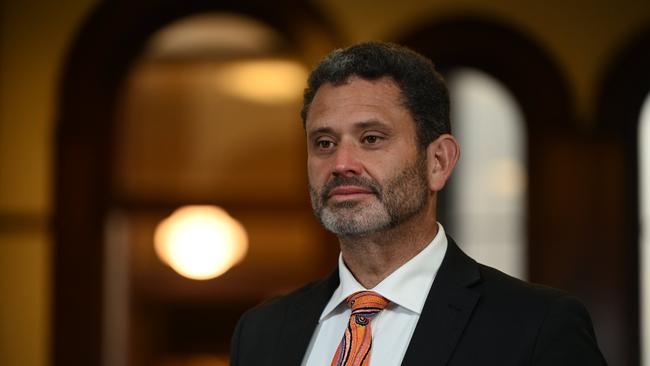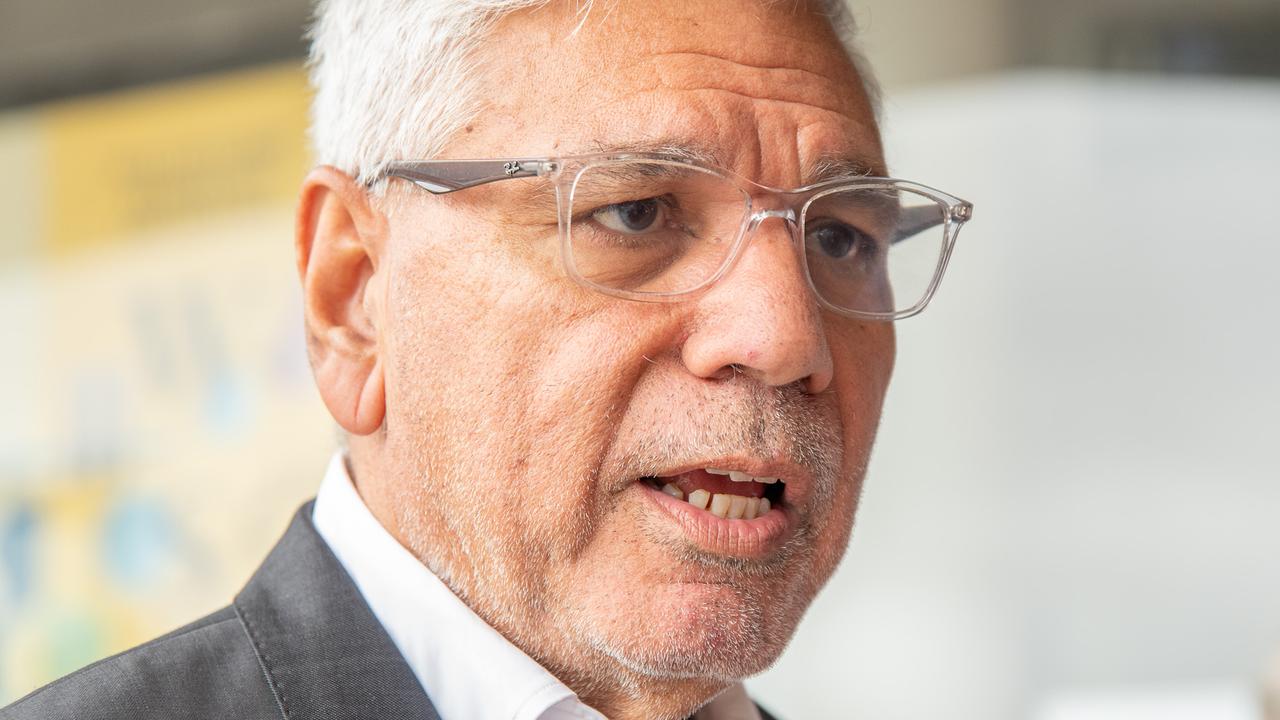Minister says he failed to read damning cashless debit cards report
South Australian Indigenous Affairs Minister Kyam Maher has said he had not yet read a damning report showing the abolition of cashless debit cards has led to increased violence.

South Australian Indigenous Affairs Minister Kyam Maher is under fire after admitting he failed to read a damning report showing the abolition of cashless debit cards has led to increased violence and alcohol abuse in remote communities.
The independent report by the University of Adelaide shows that while many Indigenous Australians welcomed the removal of the cards, most key stakeholders including business owners, tourist operators and local residents said their abolition had been largely negative.
The cards were introduced by the Coalition government in 2016 and were operating on a trial basis in Ceduna in SA, the Kimberley and Goldfields in Western Australia, and the Bundaberg/Hervey Bay region in Queensland.
In keeping with its election promise, the Albanese government abolished the cards in October 2022, labelling them paternalistic and ineffective.
But the UA report shows that in these four communities – most notedly Ceduna – many people interviewed by researchers reported an increase in lawlessness once the cards were removed.
Stakeholders also said the removal of the cards was so sudden that communities were immediately hit by a surge in bad behaviour, with no plan to transition people with alcohol and drug problems into managing their own affairs.
The cards quarantined 80 per cent of the bearer’s welfare payments so money could not be spent on alcohol, gambling or unmonitored cash withdrawals.
The UA report was released in early July but Mr Maher, who is also Attorney-General, told Parliament this week in response to questioning by the Liberals about its disturbing findings that he had not read it.
“The report’s findings were unequivocal,” Liberal MLC Ben Hood told Mr Maher. “The report found declining levels of child wellbeing and welfare, children not being fed or clothed properly due to cash being spent on alcohol and gambling, increased instances of unsupervised children on the streets at night, and decreased school attendance, particularly in Ceduna.
“Has the minister read the report? Does he stand by his previous comments that the Liberals are misrepresenting the situation in Ceduna?”
Mr Maher said: “I haven’t read the report but I certainly will.”
He questioned the methodology of the report and strongly defended the abolition of the cards which he said had been “weaponised” to “demonise” Aboriginal people for political gain.
“I will be very interested to see whether the report draws a distinction between areas that have never had that card in place,” he said. “It would of course need to have that comparison against other places in order to draw any conclusions whatsoever about the removal of the card and any impacts it has had.
“What I certainly won’t resile from is my disappointment, and certainly the local Aboriginal community leaders’ disappointment, in some of the demonising of Aboriginal people that has gone on for purely political gain.
“To demonise Aboriginal people and to weaponise disadvantage is a deeply unfortunate thing that some do for their own political advantage.”
Mr Maher told The Weekend Australian he had always intended to read the report but noted three other studies had already shown the cards were not as effective as their supporters claimed.
“Two evaluations found mixed evidence of the effectiveness of the CDC program on participant and community-level outcomes, as well as the Australian National Audit Office 2022 report,” he said.
“I will be examining the report more closely to understand the opinions that people have expressed about their views about the cessation of the cashless debit card. Importantly, state, local and commonwealth government agencies, along with service providers, co-ordinate and monitor the service response in health, justice and community services to the region.”
While the UA report notes there is “some evidence” that the abolition of the program “brought positive change” for some former card bearers, the feedback from other residents was largely bleak.
“The perceived impacts of CDC program cessation were mostly negative and centred around financial management, alcohol misuse and related issues, child wellbeing and welfare, and the number of transitional visitors,” the report concluded.
“While negative impacts on gambling activity, the wellbeing of past CDC participants and tourism were also suggested, this was primarily in the Ceduna and East Kimberley region.”
Earlier this year, SA Police Commissioner Grant Stevens said SAPOL believed cashless debit cards were “a valuable tool” in the fight against lawlessness.



